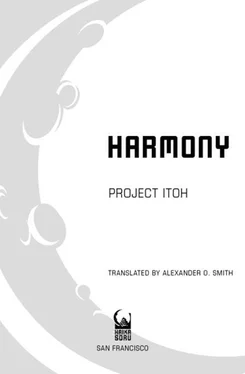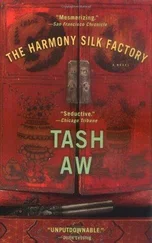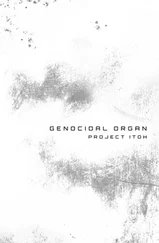Itoh, Project - Harmony
Здесь есть возможность читать онлайн «Itoh, Project - Harmony» весь текст электронной книги совершенно бесплатно (целиком полную версию без сокращений). В некоторых случаях можно слушать аудио, скачать через торрент в формате fb2 и присутствует краткое содержание. Год выпуска: 2010, Издательство: Haikasoru/VIZ Media, Жанр: Старинная литература, на английском языке. Описание произведения, (предисловие) а так же отзывы посетителей доступны на портале библиотеки ЛибКат.
- Название:Harmony
- Автор:
- Издательство:Haikasoru/VIZ Media
- Жанр:
- Год:2010
- ISBN:нет данных
- Рейтинг книги:4.33 / 5. Голосов: 3
-
Избранное:Добавить в избранное
- Отзывы:
-
Ваша оценка:
- 80
- 1
- 2
- 3
- 4
- 5
Harmony: краткое содержание, описание и аннотация
Предлагаем к чтению аннотацию, описание, краткое содержание или предисловие (зависит от того, что написал сам автор книги «Harmony»). Если вы не нашли необходимую информацию о книге — напишите в комментариях, мы постараемся отыскать её.
Harmony — читать онлайн бесплатно полную книгу (весь текст) целиком
Ниже представлен текст книги, разбитый по страницам. Система сохранения места последней прочитанной страницы, позволяет с удобством читать онлайн бесплатно книгу «Harmony», без необходимости каждый раз заново искать на чём Вы остановились. Поставьте закладку, и сможете в любой момент перейти на страницу, на которой закончили чтение.
Интервал:
Закладка:
“Come on in, I’ve been waiting for you,” came a familiar voice from inside. Of course, when I’d asked the FindYou to locate him, it let Keita Saeki know (as was his legal right) that I was looking for him. I strode through the door into the cluttered office.
“Wow, what a mess.”
The place was a mountain of printouts—manuscripts and research materials and the like. There were mounds of other dead media too. The thin black squares I recognized as floppy disks. “They’re like memorycels,” he had told me once when I had visited the laboratory as a child. As for the other things there, I had no idea what they might be called. Just looking at them, it was hard to even imagine what they might do.
“I’m surprised you can even walk around in here,” I said, making a show of hopping from bare spot to bare spot, going toward the professor like someone jumping from rock to rock across a river.
“I manage. Besides, ThingList remembers where I put everything if I ever need to find it,” the professor replied as he scratched his tangled monkey-puzzle-tree of a hairdo with one hand.
“It’s not a question of practicality. It’s a question of mental hygiene.”
“For scientists it’s always a question of need, Miss Kirie. As long as my ThingList has location tags, and it does, there’s no need for me to remember where anything is. I can just follow the arrows.”
“ThingList is a bad influence.”
“I like to think of it as outsourcing my memory to someone far more competent. I use a NeedList inside my ThingList so I don’t forget anything when I go out either.”
“Well, I spend a lot of time off-line, so that wouldn’t work for me.”
“Where’s that thesis?” Keita addressed the room. “The one that Czech mathematician wrote three years ago.” A long, pink, rubbery appendage extended from the intelligent material on the ceiling, moved about thirty feet across the room, then grew fingers to fish several sheets of a printout from a large stack, which it then brought to us. Everything in the room was tagged for identification and immediate retrieval—which meant that somewhere on the university server there was a perfect real-time replica of the professor’s office. No wonder the human race was growing soft.
I stood next to the professor and a gelatin seat materialized from the floor beneath me.
“Care for some water?”
“Got any caffeine?”
“Nah. The university—that is the student admedistration— won’t allow it. I’m surprised how well this generation looks after itself.”
“Wasn’t it your generation that wanted society to be this way?”
“Now now, how could anyone have predicted such an extremely health-conscious society would rise out of what we had before? Yo, two waters please.”
Once again the arm extended from the ceiling, pouring water into two cups and carrying them to us.
“There are many from our generation that can’t bear to fit into the molds society stamps for them,” I told him. “Plenty of people in your generation too, for that matter.”
“Give birth, consume. That’s the safe, stable cycle of life. Those who would attempt to destroy themselves, and thereby destroy that cycle, are anathema to the rest of us. Before they are allowed to do such a thing, it is our responsibility to notice the telltale signs and subject them to heavy therapy. That’s what being a thoughtful society means.”
“Don’t you think we’ve reached the limits of our over-considerate society by now?”
“What we’ve reached is a healthy, conflict-free status quo. Though the statistical rise in suicides within admedistrative society is troubling for sure, there are many who believe that pharmaceuticals and the development of novel therapeutic treatments, as well as the legal support for such treatments, will eventually bring the trend under control.”
“You seem well, professor.”
“Show me someone who doesn’t. With disease virtually abolished, it shouldn’t be hard. A lot of old expressions have lost their teeth that way, you know.”
Colds.
Migraines.
Infectious diseases.
I wondered how much pain I would have to feel before I could truly prove I existed. That I felt pain. That I was satisfied.
Cian had felt pain, and it terrified her.
She was frightened of being an undeniably living creature, with a nervous system and the whole works.
It went a little differently for the elderly. Life span was a hard out and an undeniable barrier. The older you got, the more you experienced that balance between life and death, and the more you began to fall apart, beyond the abilities of WatchMe and a medcare unit to catch up.
“Speaking of losing teeth, you can’t say that a feeble old man has no health problems,” I challenged him.
“True enough. There is no panacea for old age, I’ll give you that. But you have to agree those little buggers your dad and I cooked up are doing one hell of a job.”
“Well, for a world without disease, people sure do spend a lot of time gabbing about their health.”
The professor shrugged his shoulders as if to say it’s no fault of mine . He moved dexterously for a man in his mid-eighties.
“That’s because everyone’s still afraid that all it will take is one misstep and the cancers and viruses will be right back on us.”
“It’s already been half a century since the Maelstrom.”
“And the people who had to live through that—myself included—have control of the admedistrations. Plenty of councilors and commissioners are in their seventies and eighties. That chaos and the nuclear war that followed made our world a very harsh environment. The kind of place where you’d die without a space suit on. It was like living in a space station, one thin wall away from oblivion. The nuclear war and the radiation it spread made the perpetuation of our species a very dicey proposition, which it still would be without the help of homeostatic monitoring thanks to WatchMe and constant treatment by a medcare unit. You need strong armor to live in a harsh world.”
“So, even though the radiation’s gone, the fear remains?”
“Well, there’s a lot to be said for socialistic tendencies. Did you know that the first group to attempt the nationwide eradication of cancer and the prohibition of smoking were the Nazis?”
Fleeting memories of twentieth century history as taught in school.
With the Maelstrom waiting at the end of the semester, the sorry fate of the twentieth century Jews got sidelined in class. The longer history got, the more compressed its parts became.
“We’ll be lucky if we get one minute’s time,” Miach had said once. Leave it to Miach to imagine a history lesson one thousand years in the future. And who wouldn’t want to skip such an uneventful period in favor of something more exciting? As history marched on, our time would shrink, and shrink, and shrink away until finally there’d be nothing left.
The tragic genocide of the Jews was hanging on, tooth and nail, to its two minutes in class.
“They’re the lot who killed all those Jews, right?”
“You make them sound like rabble. They were a nation. Democratic in origin, with citizens, and voting, and a representative government. The Nazis took control over the details of daily life to a greater extent than anyone before them. They made a register of all cancer patients, listing all who had been affected, categorizing and analyzing them, all in the first organized attempt to eradicate cancer in history.”
“Fascism, was it? The political system in Germany under the Nazis, I mean.”
“Yes, and you can draw clear parallels between our admedistrative system and the health policies of the Nazis, if you like. Were you aware that pejorative words like fatty dropped from our language over the last half century?”
Читать дальшеИнтервал:
Закладка:
Похожие книги на «Harmony»
Представляем Вашему вниманию похожие книги на «Harmony» списком для выбора. Мы отобрали схожую по названию и смыслу литературу в надежде предоставить читателям больше вариантов отыскать новые, интересные, ещё непрочитанные произведения.
Обсуждение, отзывы о книге «Harmony» и просто собственные мнения читателей. Оставьте ваши комментарии, напишите, что Вы думаете о произведении, его смысле или главных героях. Укажите что конкретно понравилось, а что нет, и почему Вы так считаете.












